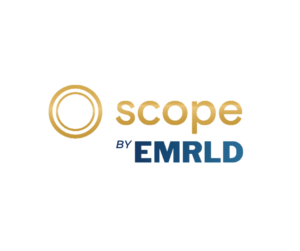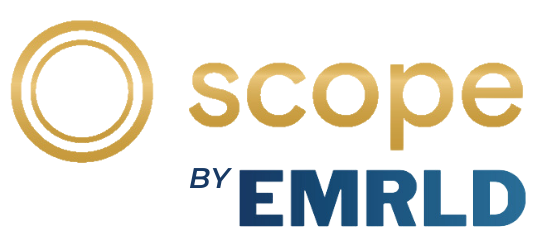Interactive Case Studies are the Fastest Way to Learn Medicine
FREE to MEDICal students, EDUCATORS, AND clinicians
Join our early adopters community

Discover Scope
Embrace the learning curve with Scope. As you grow to understand Scope’s sophistication, your ability to learn and retain information will skyrocket. We won’t share your information, so why wait? Get started learning faster.
Why Use Scope?

Fast Learning
Filling knowledge gaps while simulating a patient encounter means you are studying only what you need, and learning it in context so you will remember it in context

Real-World Cases
Simulating patient encounters is how you pull together all the relevant classroom and book learning, and solidify it in memory

Community
By discussing individual cases with peers and professors, you deepen understanding and improve knowledge retention further. Interaction with peers and mentors also boosts your motivation and counteracts burnout

Massively Improved Retention
Active learning may take a little more energy than passive learning from flashcards and videos, but it takes a lot less time because understanding and retention are greatly improved. Greatly improved!
Key Features
Scope is an EMR with integrated clinical decision support (CDS) and knowledge resources that turn Scope into a living encylopedia built on a massive medical knowledge base. Case studies in Scope excite the students’ innate problem-solving energy. The CDS and knowledge resources allow active discovery and inspire further curiosity. By elevating the student’s mental energy and senses, their understanding, capacity for learning, emotional wellbeing, and knowledge retention are all enhanced.
Interactive Learning
- Active learning requires a heightened mental awareness, which can feel difficult when you are already tired but,
- Active learning through problem solving reduces study time by many hours because the heightened state of the mind somehow results in quicker understanding and improved retention.
Differential Diagnosis (DDx)
- Differential diagnoses need to be acquired, not memorized.
- Memorizing DDx is slow, exhausting, and the learning is very difficult to retain in memory.
- Repetition of active learning in the proper context is the fastest way to learn DDx.
Knowledge Integration
- Case studies in Scope pull together classroom and book knowledge in the correct context, a patient encounter.
- Filling your knowledge gaps and reminding you of what you have already learned in context are the secret to success in exams, clerkship, and beyond.
- Traditional case studies give you the answer after the case study is over–passive learning. Searching and solving makes a case active learning.
Knowledge Gaps
- You already know a lot.
- Restudying what you already know wastes 60%-80% of your valuable time and energy.
- Scope’s ‘living encyclopedia’ of knowledge resources allows you to access what you need, when you need it, in the proper context of a patient encounter, saving massive amounts of your time.
Student EMR
- Use Scope SE in clinic to compose your own notes
- Scope will organize your encounter note for presentation to your peers and preceptor during rotations.
Student CDS
- When with real patients during your clerkships, Scope will guide you through Sx, DDx, Dx, Tests, and Treatments
- Scope’s living encylopedia fills your knowledge gaps and acts as a virtual preceptor at the point of care (POC)
How Scope Helps you Succeed
Scope is designed to help you succeed in your medical education by focusing on three core principles
Efficient Knowledge Sourcing
Traditional resources waste time. Scope provides the information you need when and where you need it, so you can focus on learning rather than searching for and sifting through resources
Big Picture Learning
Start with understanding the patient’s problem and follow your curiosity into the details. This approach helps you understand, rather than memorize, medical knowledge
Fill Knowledge Gaps
If there is a term or concept you do not understand, one click on the term opens a knowledge resource, a living encylopedia, that instantly fills the knowledge gap
Tips for maximising Scope
Work on understanding first. Repetition will reinforce your knowledge
Spend time thinking about what you've learned as you discuss it with peers
Create and share case studies to solidify your learning
Use spaced repetition: revisit cases periodically to reinforce your knowledge
Get Started with Scope!
You can get started in 5 easy steps!
First, open Scope by clicking on the Login Button below
Check out the tutorial video to help you easily navigate the site
Browse and select a course from our extensive library of curated courses
You will be prompted to login or register as a new user
Dive into the cases! Begin with the first case; the sequence has been thought through so don’t skip ahead. The cases get harder as you level up
Save yourself time!
What a valuable resource it is for students starting their clerkships

By quickly mastering the clinical pearls offered by EMRLD, students can stand out among their peers, impress their attendings, and most importantly, become more helpful in the clinic instead of inadvertently being “roadblocks”. – Bei Zhang, MD, PhD, MLS (ASCP) CM – The Robert Larner, M.D. College of Medicine at The University of Vermont

